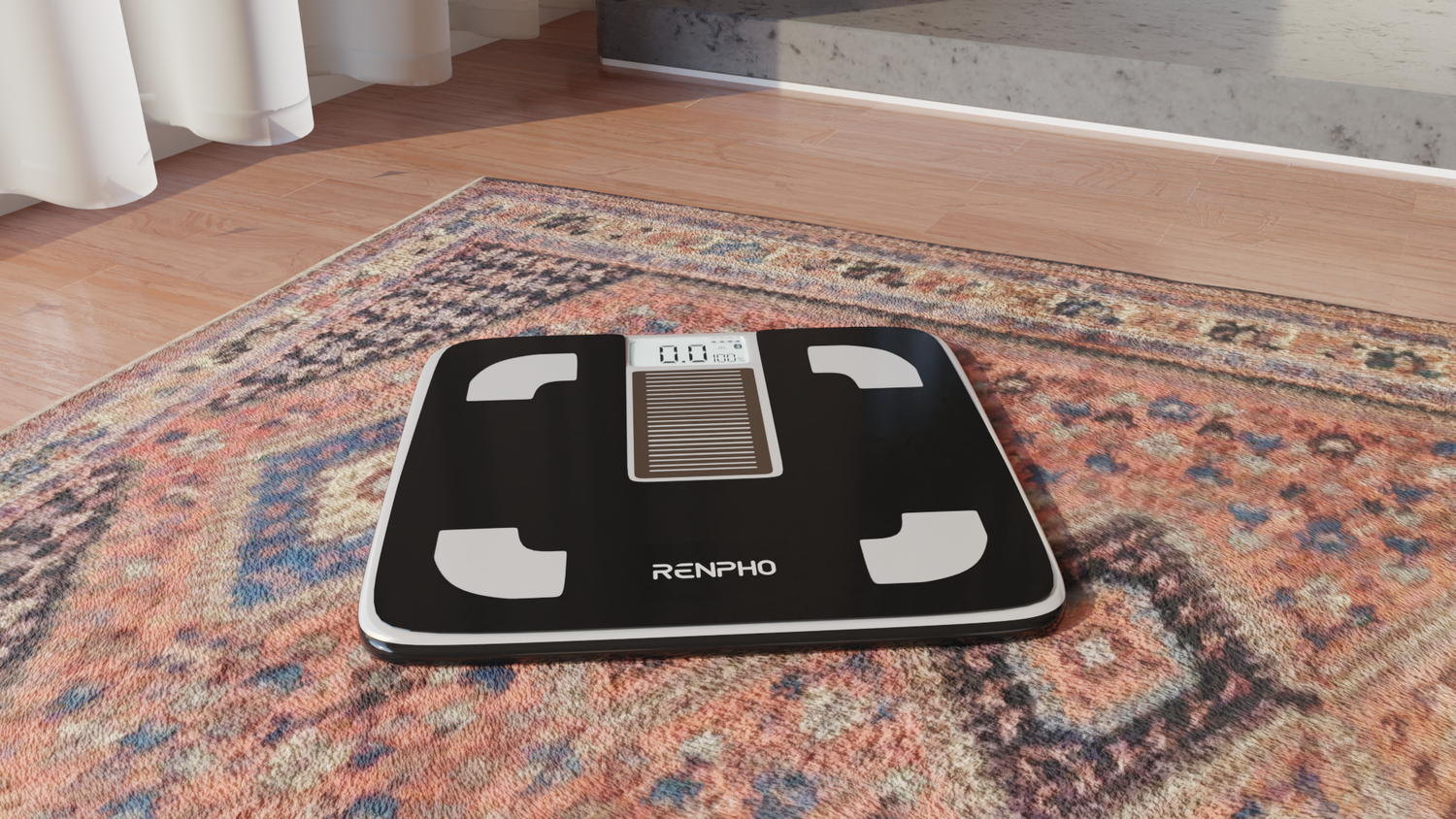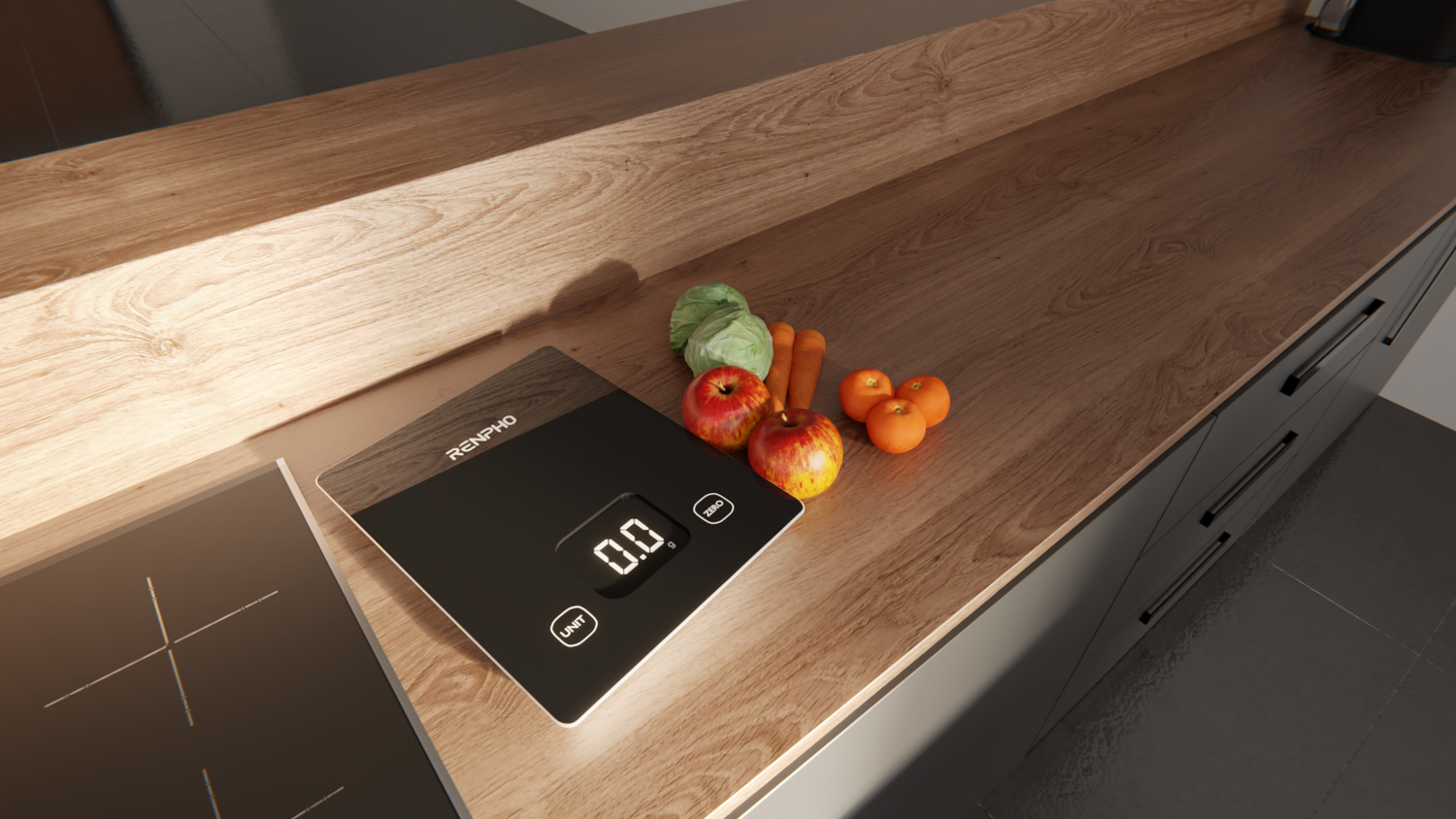If you're on a journey towards a healthier lifestyle or striving to achieve specific fitness goals, you probably understand the significance of portion control in maintaining a balanced diet. Measuring your food accurately can make a substantial difference in achieving your desired outcomes.
A common tool for measuring food portions is a kitchen scale. However, you might wonder if a regular scale, typically used for weighing other objects, can be equally effective when it comes to weighing food. Can it provide accurate and reliable measurements to support your portion control efforts?
Let’s find the answer behind using a regular scale for food weighing and discover whether it is up to the task.
What is Portion Control?

Portion control involves effectively managing the amount of food consumed to maintain a balanced and healthy diet. The practice focuses on the quantity of food eaten rather than solely concentrating on the types of food or specific calorie counts.
The concept is based on the understanding that consuming excessive amounts of food can lead to weight gain and other health issues. By controlling portion sizes, individuals can better manage their caloric intake, maintain a healthy weight, and support overall wellness.
Presently, portion control is essential because our perception of serving sizes has become distorted over time due to larger portion sizes in restaurants, fast food chains, and packaged foods. It's easy to consume more than we actually need, which can lead to overeating and potential health problems.
Implementing portion control involves measuring and monitoring the amount of food you eat, typically using tools such as measuring cups, food scales, or visual cues. It allows you to make informed choices about the quantity of different food groups, ensuring a well-balanced and nutritious diet.
Practicing portion control can have numerous benefits, including weight management, improved digestion, increased energy levels, and better control over blood sugar levels. It encourages mindful eating, helping you to savor and enjoy your food while maintaining a healthier relationship with food.
Remember, portion control is individualized, and it's important to consider factors such as age, sex, activity level, and specific dietary needs when determining appropriate portion sizes. Consulting with a healthcare professional or registered dietitian can provide personalized guidance and support in implementing effective portion control strategies.
What Is the Difference Between Portion Size and Serving Size?
“Portion size” and “serving size” are terms often used interchangeably, but they have distinct meanings when it comes to determining the amount of food you eat. The serving size, as designated by the Food and Drug Administration (FDA), is explicitly listed on the Nutrition Facts label. It is a standard reference amount that represents the average consumption of a particular food.
On the other hand, the portion size refers to the actual amount of food on your plate or the amount you choose to eat. While serving size is a standardized measurement, portion size can vary depending on several factors such as individual appetite, dietary needs, and personal preferences.
The FDA determines serving sizes based on national consumption patterns and considers factors like typical amounts eaten at meals and snacks. For instance, a serving size of microwave popcorn may be 3 cups, as it is assumed that a person would consume this amount in one sitting. However, a person might choose to eat only 1 cup of popcorn, resulting in a smaller portion size.
Similarly, the serving size for grapes might be 1 cup, but an individual may opt to eat a smaller portion of half a cup. This decision to consume a smaller portion size might be due to factors such as calorie control or dietary restrictions.
Why Is Portion Control Important for Managing Weight?
Effective weight management relies on maintaining the balance between the calories consumed and those burned. Consuming excessive calories beyond what your body needs can lead to weight gain, while consistently consuming fewer can result in weight loss.
Portion control is a key factor in effective weight management as it helps create a calorie deficit. A calorie deficit occurs when you consume fewer calories than your body needs to maintain its current weight. This prompts the body to tap into its stored energy, which primarily comes from body fat, resulting in weight loss over time.
In addition to creating a calorie deficit, portion control also promotes mindful eating. By being conscious of portion sizes, you become more aware of the quantity of food you consume. This awareness can help you make better food choices and develop a healthier relationship with food. It allows you to savor and enjoy your meals while being in tune with your body's hunger and fullness cues, preventing mindless overeating.
Furthermore, portion control helps normalize your perception of serving sizes. In today's food environment, portion sizes have significantly increased, often leading to the consumption of larger quantities of food than necessary. By practicing portion control, you can recalibrate your understanding of appropriate portion sizes and avoid falling into the trap of consuming oversized servings.
Do Food Scales Help You Lose Weight?
Food scales can be a valuable tool in aiding weight loss efforts by providing accurate measurements. These measurements provide individuals with a better understanding of their daily food consumption, enabling them to make conscious decisions about their diet and make necessary adjustments to meet their weight loss goals.
One of the main ways food scales aid in weight loss is by promoting portion control. Portion sizes can often be deceptive, leading to unintentional overeating. By using a food scale, individuals can accurately measure the exact amount of food they are consuming, ensuring they are sticking to their recommended portion sizes. This helps to prevent unnecessary calorie intake and promotes healthy eating habits.
Moreover, the benefits of using food scales extend beyond portion control. They also allow individuals to track their progress and set intentions. By consistently weighing and recording their food intake, individuals can see their progress over time and make adjustments as necessary. This helps to keep them accountable and motivated. Furthermore, food scales help to avoid overeating by providing a visual representation of how much food is actually being consumed.
Why Use a Scale for Portion Control?

Using a scale for portion control in weight management has numerous benefits. A scale provides an accurate measurement of food and helps individuals achieve and maintain their desired weight. By weighing and measuring food portions, one can have better control over their calorie intake. This is especially important for individuals who are trying to lose weight or manage specific dietary requirements.
A digital scale is particularly helpful in measuring ingredients accurately and ensuring consistent portion sizes. This is crucial in recipes where precise measurements are necessary for achieving desired outcomes. It eliminates the guesswork involved in measuring ingredients by providing accurate and reliable measurements. This not only aids in cooking and baking but also helps individuals track their nutritional intake.
Beyond individual benefits, using a scale for portion control can also have broader advantages. It reduces food waste by eliminating overestimation and excessive serving sizes. By accurately measuring portions, individuals can ensure they use just the required amount of food, minimizing waste and ultimately cutting down on costs.
Moreover, consistent portion sizes achieved through a scale can improve customer satisfaction. Customers appreciate receiving a consistent amount of food with each serving, which contributes to a positive dining experience. This can lead to repeat business and positive reviews.
Lastly, utilizing a scale for portion control helps establishments comply with food safety regulations. Consistent portioning ensures that food is cooked and stored at appropriate temperatures, reducing the risk of foodborne illnesses.
Can Body Scales Act as a Substitute for Food Scales?

When it comes to weight loss and portion control, we often turn to food scales as tools to measure and manage our intake. However, body scales can be an alternative if you don’t have a food scale.
Body scales are typically used to measure weight and body composition, can play a crucial role in helping individuals achieve their weight loss goals and maintain portion control. By using them, individuals can track their progress over time. This allows them to see whether their current diet and exercise routine are leading to weight loss or not.
By regularly weighing themselves on a body scale and recording the results, individuals can make adjustments to their diet and exercise plans accordingly. For example, if they notice that their weight has plateaued, they can analyze their food intake and make necessary changes to ensure a calorie deficit.
Furthermore, body scales can serve as a substitute for food scales when it comes to portion control. By using body scales, individuals can gauge the impact of their food choices and ensure that they are sticking to appropriate portion sizes. This is especially helpful for those who may not have access to, or find it inconvenient to use, a food scale. By weighing themselves before and after a meal, individuals can estimate the weight of the food they consumed, helping them develop a sense of portion sizes.
Takeaway
Portion control is crucial for maintaining a balanced diet and achieving specific fitness goals. It involves managing the quantity of food consumed to support overall wellness and weight management. It helps individuals avoid overeating, normalize their perception of serving sizes, and develop a healthier relationship with food.
While portion size refers to the actual amount of food on your plate or the amount you choose to eat, serving size is a standardized measurement determined by the FDA. Portion control is important for managing weight because it creates a calorie deficit and promotes mindful eating. It helps individuals make better food choices, prevent mindless overeating, and recalibrate their understanding of appropriate portion sizes.
Food scales are valuable tools for portion control and weight loss. They provide accurate measurements of calorie intake, promote portion control, and help individuals track their progress. Food scales ensure individuals stick to recommended portion sizes, prevent unnecessary calorie intake, and promote healthy eating habits. They also aid in setting intentions, tracking nutritional intake, and avoiding overeating.
Using a scale for portion control has numerous benefits. It provides accurate measurements, helps individuals achieve and maintain their desired weight, aids in cooking and baking, and reduces food waste. Consistent portion sizes achieved through a scale can improve customer satisfaction and help establishments comply with food safety regulations.
While body scales are primarily used to measure weight and body composition, they can serve as an alternative to food scales for portion control. Body scales allow individuals to track their progress, adjust their diet and exercise plans, and estimate the weight of the food they consume.
Essentially, both types of scales are valuable tools on the journey to a healthier lifestyle.
Renpho Health Tips
-

Nourish to Flourish: Crafting Self-Love Through Wholesome Cooking
February 28, 2024
Read more >
-

Carpets vs. Digital Scales: Understanding the Challenges and Solutions
February 27, 2024
Read more >
-

5 Reasons Why Weighing Scales Are the Secret to Elevating Your Cooking Skills
February 26, 2024
Read more >
-

How to Cook Hygge-Inspired Meals for a Cozy and Nourishing Winter
February 21, 2024
Read more >
-

Maxed Out or Malfunctioning? Why Does My Digital Scale Say 'Full'?
February 21, 2024
Read more >




































